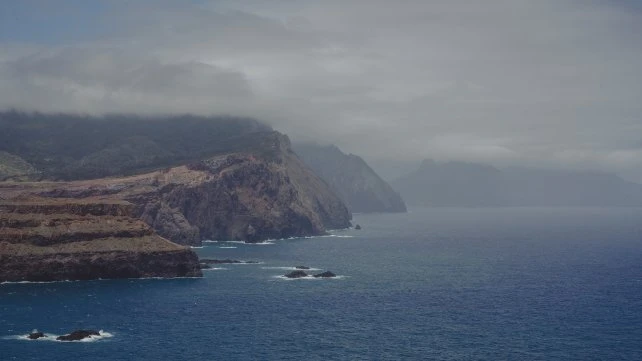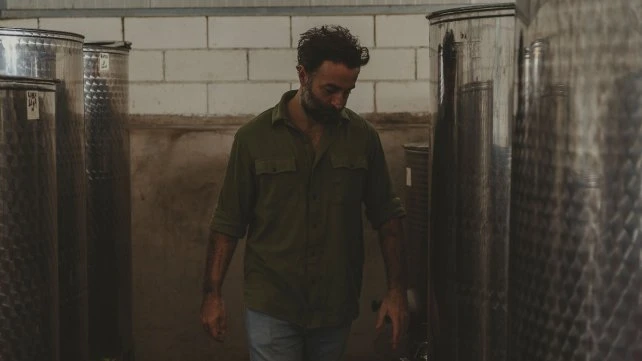
Domaine de Suremain
The wine goes down fine
when the grapes
grow up divine.
So says Loïc de Suremain, heir to the family estate and self-taught archaeologist.

I had to try it! For days, Simona and I had walked past it and each time I would peer in, my forehead pressed up against the window, intrigued and fascinated. The boucherie resto du 16, at n°16 Rue d'Alsace in Beaune isn’t a restaurant, it’s a butcher's shop or rather an oasis for meat-lovers. Here they only serve meat, no wine whatsoever. In fact, the owner's philosophy is that, “it’s far too much bother, worrying about having the right wine for every single cut of meat, far better not serving any at all and allowing people to bring their own.” Chapeau! Simona decided to indulge me and so, before heading off to our destination, we had some sensational Jambon de persille for lunch.
Then, as plump and well-fed as the pigeons of Piazza San Marco in Venice, we set off for Mercurey, the French village in the Saône-et-Loire region that owes its name to the god Mercury and its wealth to the Roman Empire, which brought the fruit of the vine and the art of viticulture here.
At 2.50 p.m. right on time, we pass through the gigantic gateway of the Domaine de Suremain estate.

On the threshold of the manor house, standing six steps above us, we are greeted by a man exuding Frenchness.
Clad in shorts and a blue checked shirt that struggles valiantly to contain a rather distinguished paunch, he is wearing a pair of deck shoes that had obviously been much loved and, naturally, are unlaced. He approaches us, smiling.
His warm welcome leads us to believe that this is Loïc, the man with whom we have an appointment, but within minutes we realise two things: the man is Loïc's father, Yves de Suremain, and he doesn’t speak a word of English. After our initial bewilderment, we realise that the language barrier, instead of separating us, will give us the opportunity to bond even more.
Yves beckons us to follow him for his “tour du propriétaire”, during which he shows us the rooms where the various phases of wine production take place, from fermentation to final storage.
As we head towards the refinement room, we come across a magnificent Citroen 2CV: a present from Yves to his wife Marie-Hélène on her 60th birthday. He tells us this with the proud smile of someone who is aware that he has given the perfect surprise to the woman he has always loved and whom no one knows better than him. We haven’t had a sip of his wine yet, but this man has already warmed our hearts.

Subscribe
Every month we will present an unknown and exclusive winery we have discovered. Every month you will receive what we consider to be its best bottle delivered directly to your door: a wine that is always new, exclusive and surprising. If you choose an annual subscription and pay in a single instalment, you will receive a 10% discount.
The tour continues and Simona's fingers zip faster and faster on Google Translate to keep up with the deluge of words that Yves pours over us. He looks at her, a little bewildered and amused at the same time. Maybe it’s because of his gestures or perhaps his “et voila”, but it seems so easy for us to understand him.
Yves de Suremain has been growing grapes and producing wines for over 40 years. He was the only one, of seven brothers, who had always dreamed of becoming a winemaker. “If I hadn't taken over the family estate, I'd still have become a winemaker. I have wine in my blood."
The family estate in question is an example of winemaking excellence that has remained intact for seven generations: it dates back to 1870, when Charles de Suremain brought together a cluster of individually owned meix (small independent farms). The bottling activity in the castle of Bourgneuf, a stronghold of the Suremain family for seven generations, dates back to 1947, when Hugues de Suremain took over the business, while, in 1979, Yves and his wife Marie-Hélène settled on a small adjacent farm until, in 1993, they took over the entire Domain. Today their estate covers 18 hectares, all in the Mercurey region, from which the wines take its prestigious denomination: one of the oldest in France, established by the court of Chalon-sur-Saône in 1923, a guarantee of integrity and quality.
Having left the “élevage" cellar and made our way back to the sunny vineyard, Yves makes us understand that the giant of a man heading towards us at a steady pace is his son Loïc. We sense an overwhelming feeling of paternal pride.
If Yves is already in the history of the estate, Loïc is guaranteeing its future.
At the helm of the family business since 2004, he is also the current President of the Mercurey Odg (Organisme de Défense et de Gestion) Association, just like his father before him. This is a collective of winegrowers that works to protect biodiversity and the environment, prioritise conservation and pass on a healthy terrain to future generations. Loïc, for example, rejuvenates the plot by replanting about ½ hectare of vineyard each year.
As he approaches, we see that not only does he look very much like his father, but that he has also inherited his amiable and generous smile.
He reminds us a lot of Marshall, the protagonist of the sitcom "How I Met Your Mother": a kind, jovial and genuine person.

Loïc too hasn’t fully mastered English and would like to apologize. However, his father stops him in his tracks: "You can speak French; Simona has a device that transforms words". Google Translate metamorphosed into poetry.
He takes us directly to the room where the wine is stored and starts filling an old aluminium wine bucket with his Premier Cru. From there we follow him into the tasting room. He seats us in front of the fireplace and starts to slip the capsules off the bottlenecks of his treasures.
Before each tasting, he shows us jars full of earth, the earth of his land, the land of his Domaine.
He opens them, makes us smell them, and turns to point out exactly where we should look, so we can see which part of the terrain he’s talking about.


Loïc is not one of those people who is uncomfortable with silence; he doesn't rush to fill it, neither does he dwell on details just to draw attention to himself. When he speaks, he does so to truly communicate, to convey his passion and dedication. We appreciate that.
Just as we appreciate his wines, and when we point this out to him he comments without flinching, " the wine goes down fine when the grapes grow up divine."
Then he freezes, as if stuck by an idea. He rushes out of the room leaving us there to drink alone.
A couple of minutes later, he is back, clutching what to him are evidently two extensions of himself: a rock from one of his terrains and a bottle of Genèration VII, the jewel in Suremain's crown.
Génération VII is a rare and precious wine, and this is no mere figure of speech; it really is, since it is produced in the very limited run of 500 bottles per year (and that's in the best-case scenario, weather conditions permitting).
Loïc adds nothing more, but he lets his gestures speak. Beating his chest over his heart, he bends down to pound the floor with the same vehemence as if to say:
“I am this place. My past, my present and my future are all here.”
When we raise Génération VII to our lips, we do so with respect and admiration. Its scent parenthesizes time, its colour akin to the ink of solemn oaths and its touch evokes silk velvet.
Of all the wines tasted at Domaine de Suremain, in addition to Génération VII, we were particularly captivated by En Sazenay and Clos L'Evêque.
You can discover them in our archive.
The time has come for us to leave the estate. However, before letting us go on our way, Loïc pauses to show us the fossils he has unearthed in the vineyard over the years. This came as something of a surprise, we never imagined that we’d find an open-air museum here. Simona tugs at my sleeve and in a low voice asks me, chortling, "You didn’t tell him the explorers' story too, did you?" Perhaps I did. I tell it often: some of my friends say too often. In any case, I take the chance to barrage him with questions about his archaeological finds.


The time to say goodbye can no longer be postponed.
Mere hours ago, Yves and Loïc weren't even part of our lives; now that they are, we regret having to relegate them to our memories already.
All this is on our minds but, shyly, we keep it to ourselves. Indeed, out of modesty, as we get into the car, we give just a small nod of greeting. Loïc, who has meanwhile jumped on his ATV, is more generous. He opens his arms and spreads his smile wide.
P.S. The rock that Loïc gave me, in passing, is now an integral part of the furnishings of my home.

Gunter's other travels

Isola di Madeira
Companhia de Vinhos dos Profetas e dos Villões
I have been friends with Antonio Maçanita for almost 20 years and I know he was the only one crazy enough to believe in this vision.

Abruzzo
Fattoria dell’Orso
In every bottle there is something of the person who produced it and their dreams. There is a social commitment, a legacy for future generations.










